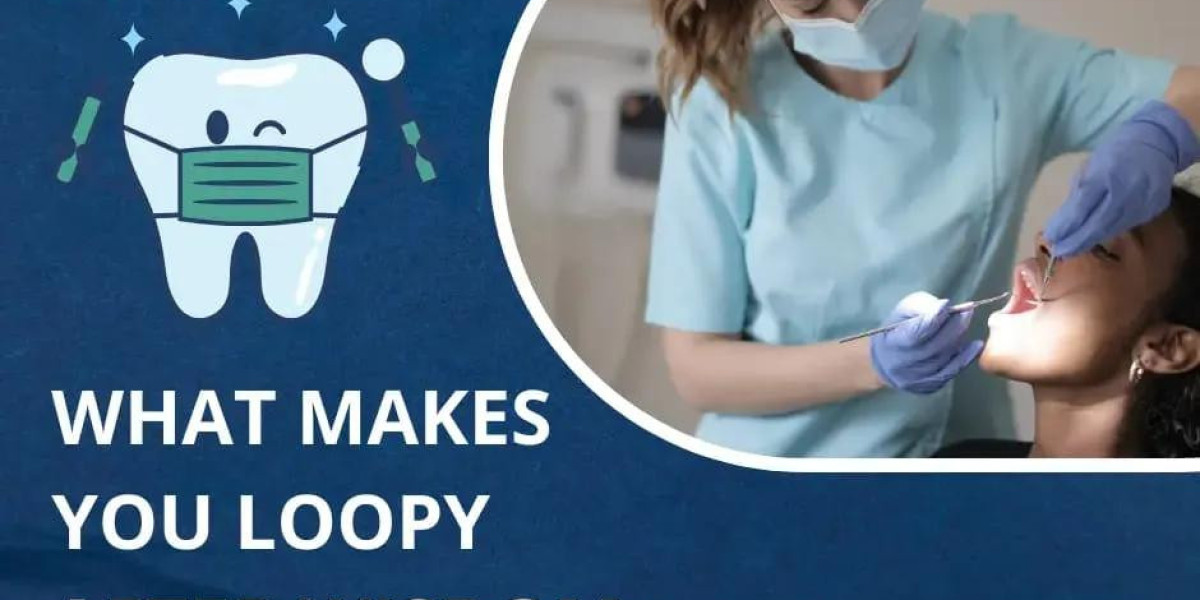Wisdom teeth removal is a common oral surgery, especially among teenagers and young adults. If you’ve ever seen videos of patients laughing uncontrollably, crying for no reason, or talking nonsense after their procedure, you may wonder: what makes you loopy after wisdom teeth removal? The answer lies in the medications used and how the brain responds to them.
This article will explore the medical reasons, recovery phases, and real-world effects of post-surgical loopiness. It’s more than just a funny video moment—it's about understanding how your body reacts to sedation and anesthesia, and how to manage recovery safely.
Understanding the Role of Anesthesia in Wisdom Teeth Removal
Sedation Options and Their Effects on the Brain
Oral surgeons often use local anesthesia, nitrous oxide (commonly called laughing gas), IV sedation, or general anesthesia depending on the complexity of the extraction. The "loopy" feeling is primarily associated with IV sedation and general anesthesia. These methods affect brain function temporarily, dulling pain and altering perception.
The main objective of these medications is to keep the patient calm, pain-free, and still during the extraction. However, these drugs also affect the brain’s ability to process emotions and thoughts. That’s why some patients feel like they're floating, euphoric, or completely disconnected from reality after surgery.
What Makes You Loopy After Wisdom Teeth Removal?
The Science Behind the Loopy Behavior
The combination of medications—including benzodiazepines, opioids, and anesthetics—disrupts normal brain activity. These substances slow down brain function, affect memory, and inhibit impulse control. The result? You say things you normally wouldn’t, cry for no reason, or laugh uncontrollably.
This is a temporary state, but during those moments after surgery, you may not be aware of what you’re saying or doing. Some patients report a feeling of being in a dream-like state, while others have no memory of what happened post-surgery.
Why Everyone Reacts Differently
Individual responses to anesthesia vary. Factors such as body weight, metabolism, age, previous exposure to anesthesia, and current health conditions influence how loopy someone might feel. A petite teen may become more disoriented than a healthy adult male, simply due to how the body absorbs and clears medications.
The Emotional Rollercoaster: Is It Normal?
Common Emotional Reactions
Many patients experience a wide range of emotional responses during recovery, including:
Uncontrollable laughter
Sudden crying
Confusion or disorientation
Childlike behavior
Singing or storytelling
These reactions are completely normal, though sometimes surprising or embarrassing for the patient later. Videos may be funny, but it’s crucial to remember that these behaviors are a medical effect of sedation, not a reflection of personality.
How Long Does the Loopiness Last?
The Recovery Timeline
The immediate effects of anesthesia typically wear off within 30 minutes to 2 hours. However, drowsiness, impaired judgment, and slow reaction times can persist for up to 24 hours. That's why doctors advise against driving or making important decisions right after surgery.
For some individuals, short-term memory loss may occur for several hours. It's common to forget the car ride home, conversations, or even receiving post-op instructions. This is a direct result of the anesthesia’s effect on the hippocampus, the brain’s memory center.
Is It Safe? Medical Considerations Behind Post-Surgery Behavior
Short-Term Effects vs Long-Term Impact
For most healthy individuals, the loopy behavior is short-lived and harmless. The body metabolizes the drugs quickly, and normal brain function resumes without complications. However, individuals with a history of neurological conditions, substance sensitivity, or psychiatric illness should inform their oral surgeon beforehand.
Tips to Ensure a Safe Experience
Have someone accompany you: You won’t be able to drive or function clearly for a few hours.
Follow post-op instructions: Even if you don’t remember them, your caregiver should.
Avoid alcohol and sedatives: These can worsen the aftereffects.
Take it easy: Plan for a full day of rest.
Wisdom Teeth Removal and Social Media: Should You Record It?
The Viral Trend of Loopy Patients Online
While it may seem entertaining to film someone acting silly after surgery, it raises privacy and ethical concerns. Patients are not in full control of their behavior and may not consent to being filmed or shared online.
If you do plan to record, make sure the patient agrees beforehand and understands their rights. Respecting someone’s medical recovery is more important than social media likes.
Gender Differences: Are Women More Affected?
There is no definitive scientific evidence suggesting women experience more intense loopiness than men. However, women may metabolize certain anesthetics differently due to hormonal fluctuations and body fat percentage, potentially leading to slightly different reactions. This remains an area of ongoing research.
How Stoodmens Helps Ease the Recovery Journey
At stoodmens, our focus is on patient-centered education and comfort. We understand that wisdom teeth removal can be a stressful experience, which is why our platform helps patients and caregivers prepare ahead of time with trusted insights and recovery tips.
Whether you’re curious about what makes you loopy after wisdom teeth removal or seeking answers on pain management, our team delivers answers that matter. Recovery doesn’t have to be confusing or overwhelming.
Stoodmens aims to break down complex medical topics into digestible, human language—just like this.
FAQs
What exactly makes you feel loopy after wisdom teeth surgery?
It’s the sedatives and anesthetic drugs used during the procedure. These substances affect brain activity, causing temporary changes in mood, perception, and behavior.
How long will I feel weird after the extraction?
Most of the loopy feelings wear off within a few hours. However, drowsiness and slower reaction times may last up to 24 hours.
Is it safe to drive after wisdom teeth surgery?
No. You should not drive or operate heavy machinery for at least 24 hours after receiving sedation or anesthesia.
Will I remember what I said after surgery?
Often, no. The medications can cause short-term memory loss, making it hard to recall conversations or experiences during the first few hours after the procedure.
Can I prevent the loopy behavior?
Not really. The effect is a normal part of how the body reacts to anesthesia. However, you can ensure a safe environment by having someone accompany you and avoiding responsibilities during recovery.
Do all patients act loopy after anesthesia?
No. While many people exhibit funny or emotional behavior, others may simply be sleepy or quiet. Reactions vary based on individual sensitivity to the drugs.
Is it okay to laugh or cry after surgery?
Yes. These are normal emotional responses. The brain is in a highly relaxed, altered state and may express emotions more freely.
Does the loopy feeling mean something is wrong?
Not at all. Feeling loopy or disoriented is expected and usually resolves quickly. However, if symptoms persist beyond 24 hours, contact your oral surgeon.
What should caregivers do during this period?
Caregivers should ensure safety, help the patient with basic tasks, and monitor for any signs of complications such as prolonged vomiting or dizziness.







